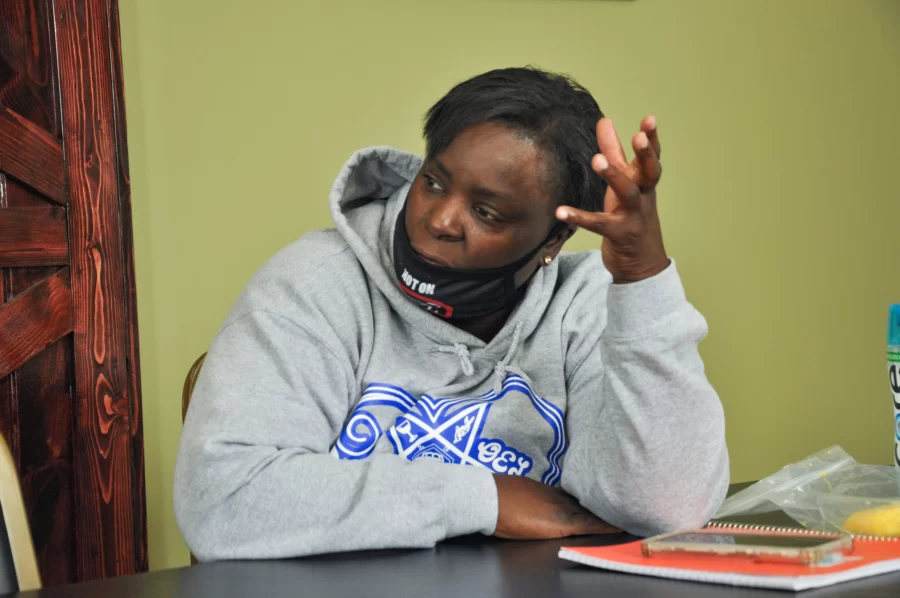Guiding the formerly incarcerated home
Tamika Davis talks about the program First Followers and their goal in aiding and giving hope to those formerly incarcerated. Davis has helped in building the program since it began in 2014.
Oct 25, 2022
Tamika Davis was incarcerated from 1999 to 2008. When she returned home from prison, she had nothing.
“It was hard for me to find employment — it was hard for me to find housing,” Davis said. “I had nowhere to turn and no support system installed.”
Davis said she is living proof that people can rebuild their life after incarceration. Two years before she was released from prison, her children were put in DCFS custody, and after her release, she had to “push through all odds” to get them back.
“I never want to see a person coming from my experience to say that they can’t make it,” Davis said. “I know what it looks like to be out there by (yourself).”
In 2014, she met Marlon Mitchell at church, who asked Davis about the idea of starting a prison reentry program.
Get The Daily Illini in your inbox!
Davis agreed to help build the program that is now known as First Followers. It was created to build resilient communities by “providing support, guidance and hope to formerly incarcerated people and their loved ones through peer mentorship,” according to the organization’s website.
At First Followers, Mitchell serves as the executive director, and Davis is a peer mentor at the organization.
Davis said her personal experiences motivated her to help found First Followers and build the organization from the ground up.
“(I joined) because the community needed a reentry program,” Davis said. “I knew that there was nothing here for returning citizens back into their communities.”
Davis said that formerly incarcerated individuals face huge barriers in finding employment and fair housing.
According to the Illinois Justice Project and Metro Planning Project, in Illinois, about 28,000 people are released from prison each year, and “nearly 40% of people return to prison within three years.”
To address these barriers, First Followers operates a halfway house to help formerly incarcerated individuals reintegrate into society and offers programming to help them find jobs.
First Followers is also part of H3, a coalition of organizations in Champaign County created to end community violence.
As a peer mentor for First Followers, Davis is able to draw from her past and use it to help others.
“My passion is my pain. I’ve gone through it.” Davis said. “I’m able to take somebody that’s (had) the same experience as me and show them how to … better themselves.”
Davis said a support system and access to resources also plays a huge role in preventing recidivism, which is relapsing into unlawful behaviors.
“With a support system, you can always make it,” Davis said. “You don’t know you want to change until you’re put in a different environment.”
Davis said she believes the current criminal justice system should be restructured to focus on rehabilitation rather than punishment. Instead of tearing families apart, the system should aim to preserve, she said.
“The system should be made to actually help and not take away from families,” Davis said. “Stop tearing families apart — put families together.”
Davis’ passion for helping others goes beyond her role at First Followers.
“You won’t be out there by yourself,” Davis said. “I will carry you to the water. And if I need to take my hand and bring water to your mouth to help you drink, I will also do that.”






